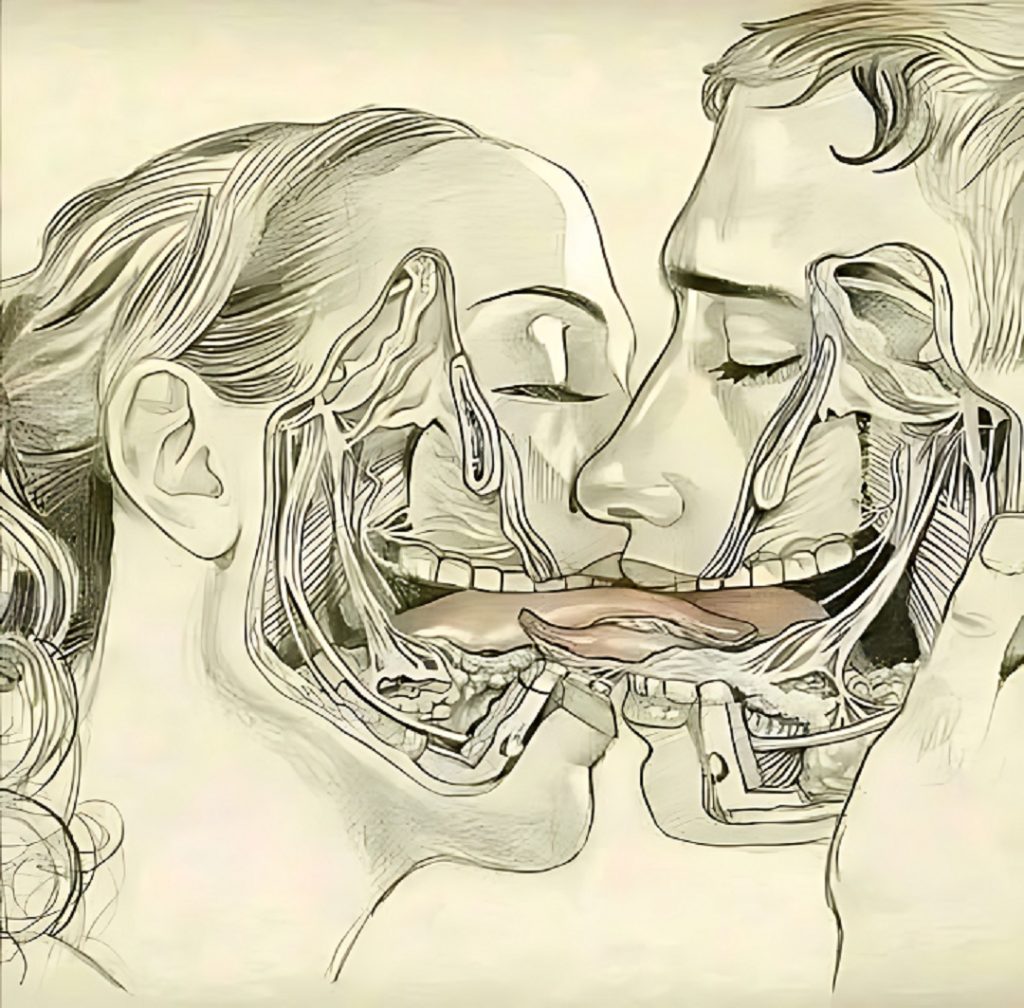The Tongue ![]() and What Happens When We Kiss Tongue: Secrets of Passion and Sensation
and What Happens When We Kiss Tongue: Secrets of Passion and Sensation
Ever wondered what really happens when two tongues meet in a kiss? The tongue is not just a simple muscle — it’s a powerful tool of intimacy, sensual connection, and deep passion. When we kiss tongue, also known as a French kiss, a whole world of erotic chemistry and sensory pleasure unfolds.
From the moment tongues touch, your brain releases dopamine and oxytocin, the “feel-good” and “bonding” hormones that heighten excitement and create emotional closeness. The exchange of saliva can even boost your immune system and create a subtle, natural attraction.
But it’s not just biology — the tongue is an expert in reading subtle cues, creating rhythm, and deepening romantic connection. This act of tongue kissing triggers powerful physical and emotional reactions, making it one of the most intimate and unforgettable experiences between partners.
Ready to explore the secrets behind the tongue’s role in passionate kissing? Dive into the fascinating world of tongue kisses, discover why they feel so addictive, and learn tips to master the art of the ultimate sensual kiss.
We all know that deep kissing — the steamy, passionate kind known as French kissing — is often a symbol of love, desire, and connection. But what if we told you that this intimate act has a hidden side that could leave even doctors speechless?
Yes, that kiss might be more than just a spark — it could be a gateway to surprising health effects, both good and bad. In this eye-opening post, we reveal the lesser-known consequences of deep kissing — from shared bacteria and unexpected allergies to powerful emotional shifts.

What You’re Really Swapping: Germs & Infections
Every time you kiss deeply, you’re not just sharing a moment — you’re sharing saliva. And with it, a cocktail of bacteria and viruses. Here are some common (and not-so-common) illnesses that can be transmitted:
- Colds & Flu – Respiratory bugs love a close encounter.
- Mononucleosis – Famously known as “the kissing disease.”
- Herpes Simplex Virus (HSV-1) – Can spread even without visible sores.
- Meningitis – Rare, but possible via saliva exchange.
- COVID-19 – Still a concern during close physical contact.
Kissing & Your Teeth: Not Always a Love Story
Sure, kissing can stimulate saliva and help wash away bad bacteria. But the flip side?
- If your partner has gum disease or cavities, those germs can spread.
- A mismatch in oral hygiene can lead to bad breath battles you didn’t sign up for.
Wait, Did You Just Eat Peanuts?
Kissing someone who recently consumed something you’re allergic to — whether it’s nuts, shellfish, or certain meds — can trigger an unexpected allergic reaction. Even tiny traces in saliva can be enough to cause problems.
The Emotional Rollercoaster
Deep kissing isn’t just physical — it’s emotional, too. That’s what makes it powerful… and sometimes complicated.
- One person may see it as love, the other as a fling.
- Feelings of attachment, confusion, or even regret can surface.
- It can stir up emotional chaos, especially in undefined or strained relationships.
But It’s Not All Bad — The Sweet Side of Smooching
Despite the risks, kissing has some undeniable perks:
- Boosts dopamine and oxytocin — the feel-good, bonding hormones.
- Helps reduce stress and ease anxiety.
- May slightly strengthen your immune system by exposing you to low levels of new bacteria.
The Bottom Line
Deep kissing can be magical — a spark of chemistry, a symbol of connection, a moment of intimacy. But it’s not without its risks. Being mindful of your health, practicing good hygiene, and having honest conversations with your partner can keep that kiss sweet, safe, and unforgettable.
So next time you lean in, just remember — there’s more behind that kiss than meets the lips.



